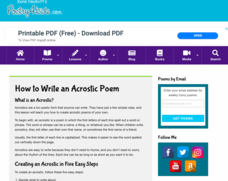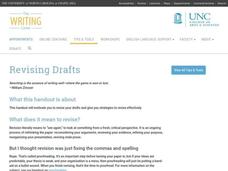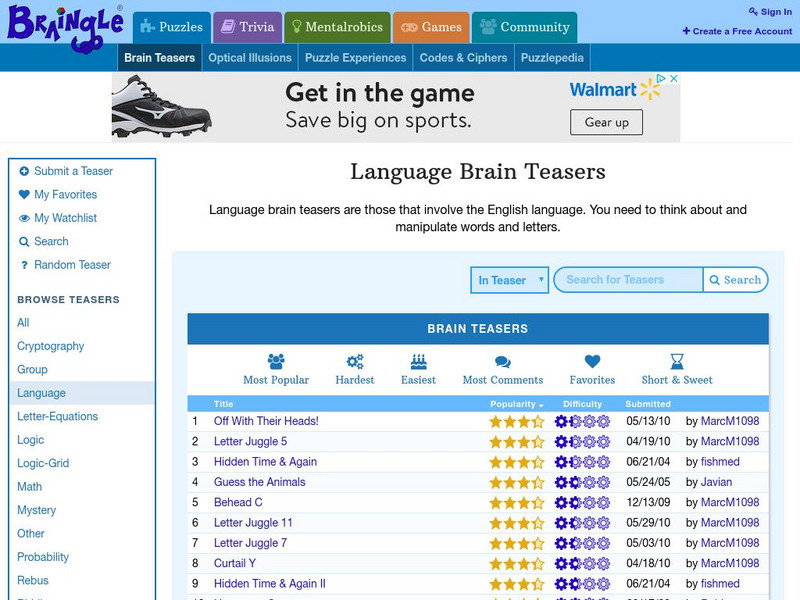University of North Carolina
Relative Clauses
Knock, knock. Who's there? To. To who? No! To whom. Knowing when to use who versus whom is just one of the many topics covered on a handout about relative pronouns. Writers discover how to incorporate words such as whose, that, which,...
University of North Carolina
Latin Terms and Abbreviations
N.B.. cit., n.b., viz., sc., inf. e,g,—these abbreviations frequently appear in academic papers and on works cited lists, but what do they mean? Part of a larger series to improve writing skills, the handout on Latin terms and...
ProCon
Fighting in Hockey
At best, fighting in hockey makes the sport more entertaining; at worst, fighting could lead to death. Pupils read background information about the prevalence of fighting in hockey since the 1917 formation of the National Hockey League....
Poetry4kids
How to Write an Acrostic Poem
Acrostic poems are perfect for any topic! A quick tutorial guides learners into writing acrostic poems with the basics and key examples.
University of North Carolina
Revising Drafts
Don't simply proofread ... revise instead! Revising drafts is the topic of the 17th handout in UNC's Writing the Paper series of 24 lessons. Writers discover the importance of revision, as well as steps to follow during the process.
Braingle
Braingle: Language Brain Teasers
"Manipulate words and letters" with these "language brain teasers" that ask you to think about letters, anagrams, syllables, consonants, rhymes, and other topics that you talk about in English class. Try the brain teasers presented here,...
Other
Ez Games: Games for Preschool Grade 2
Contains a number of games appropriate for preschool through grade one that focus on developing vocabulary and spelling skills. Includes games that ask students to match rhyming words, match from memory, match pictures to words, and more.






